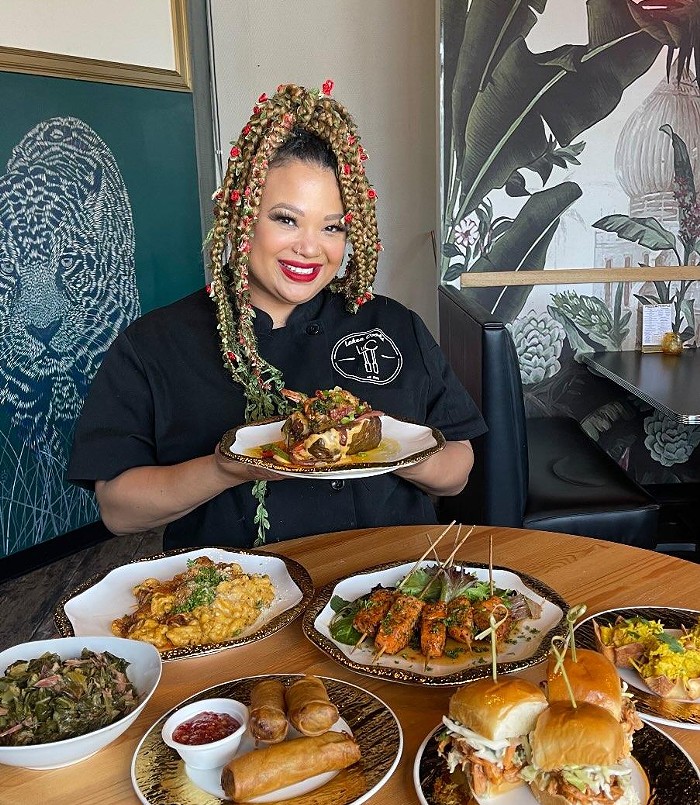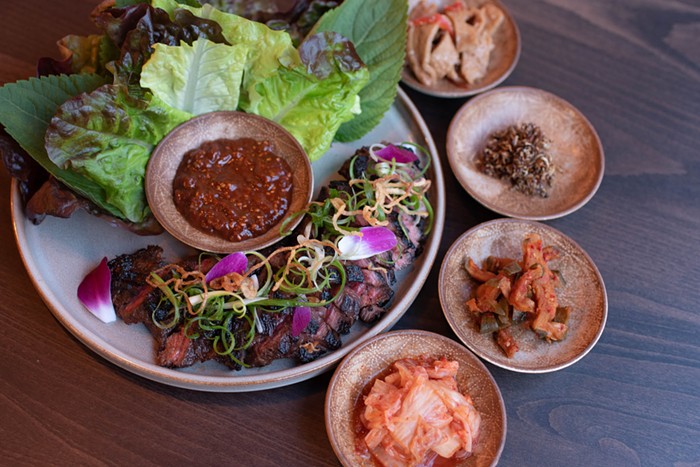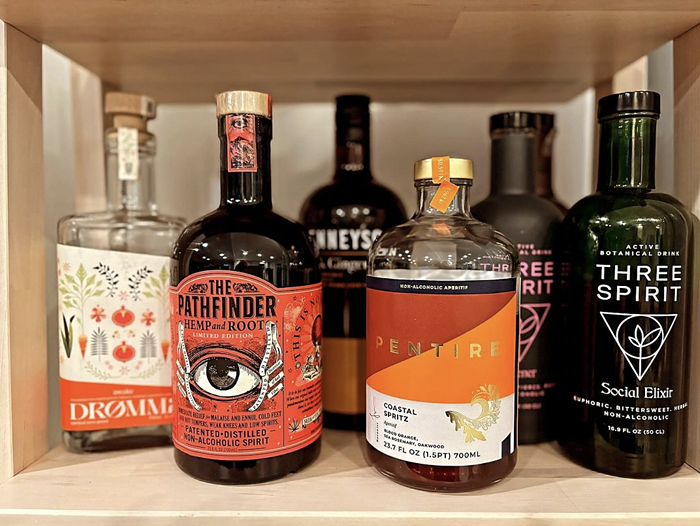As soon I ended my morning shift, exhausted and starving, I'd head down to Chinatown with a couple of busboys. There we'd have dim sum in a crowded, noisy dining hall, where servers yelled out items as they pushed stainless steel carts stacked with steamers and small covered plates. No frittatas, no scones--just pork, shrimp, or beef dumplings; sesame balls with sweet bean paste; scallion pancakes; seasoned short ribs; steamed chicken feet with garlic sauce; daikon radish (a.k.a. "turnip") cake; glossy egg custard in a flaky pastry cup; stuffed wide rice noodles; and fragrant sticky rice with chicken, mushrooms, and pork butt wrapped in lotus leaves, like a tamale. This was my idea of brunch--cheap and fast, with plenty of meat and aggressive flavors, eaten with people shouting over each other in a room throbbing with activity.
In Chinese, dim sum means "snack," or eating a little bit; translated literally, it means "dot on the heart." It's an old-world Cantonese teahouse tradition: a variety of bite-sized food and pastries meant to be sampled and shared with a group over tea. Everyday Chinese breakfasts are actually not this elaborate; the simple breakfasts of my childhood consisted of hot rice porridge with soy sauce and pickled vegetables. Enjoying dim sum is more of a weekend treat, more about being social, and about savoring the labor-intensive little delicacies.
These days, in a different city with a different job, I no longer have to put up with the annoying brunch crowds and their special requests, but dim sum remains a weekend constant. Although many swear by the top-notch fare and exciting pace at House of Hong (409 Eighth at Jackson, 622-7997), my heart belongs to Honey Court (516 Maynard at Weller, 292-8828), where the dim sum experience includes, in addition to the standard dishes, delicious steamed curry squid, scallop dumplings, Cantonese sponge cake, and my favorite, the crispy seafood roll: crabmeat, scallops, water chestnuts, and scallions wrapped in seaweed, dredged in a light batter, then briefly deep-fried. I can never have enough. Plus, the Honey Court's hostess is an extremely tall Asian woman who slices through the room with efficiency and grace (and looks like a CIA operative who could kill somebody with a finger).
You can avoid long Sunday-morning lines at Four Seas (714 S King at Eighth, 682-4900), an enormous banquet hall where your dumplings are not only wheeled right up to you, they're also heated up tableside in a portable wok. A plate of Chinese broccoli with oyster sauce, vibrantly green and steamed to a perfect, tender-but-not-mushy texture, is the perfect companion to Four Seas' excellent sweet 'n' sticky BBQ pork hom bows and meatballs. A block over, at China Gate (516 Seventh at King, 624-1730), a favorite for Peking duck and karaoke, the dim sum ain't too shabby either--especially if you're crav-ing Szechuan ox tripe, chive and shrimp cake, or mashed black sesame dumplings with peanut sauce. But if tripe seems a little too intense, the new weekend dim sum menu at Dragonfish (722 Pine, at the Paramount Hotel, 467-7777) offers a well- executed beginner's selection. There are no carts here, no chicken feet, and no roaring white noise: just serene service and elegant options (all gorgeously presented) such as roasted duck spring rolls, Chinese bacon and scallion mini-quiche, shiitake and salmon satay with a wonderful noodle salad, and savory spare ribs with hoisin sauce. I was so infatuated with the orange beef satay and orange-chili noodles--grilled to a supple medium-rare and sublimely infused with citrus flavors--and the lemongrass crème brêlée, that it was nearly all gone before I realized how good it was.
This is the problem with dim sum: It's gone all too soon. Those of us who mindlessly inhale big portions will have to slow down and truly relish what we love.


















